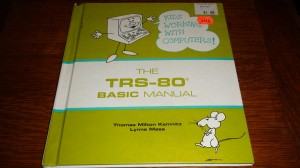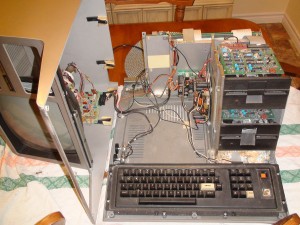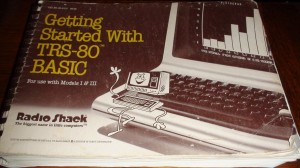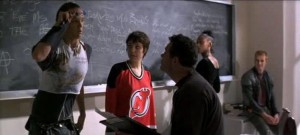Last year I went to my 10 year university reunion. The further I get from graduation, the more I have to discount the value of what I learned there.
Don’t get me wrong, a solid base knowledge in the fundamentals of electronics and some algorithm & data structure knowledge has gotten me out of some tight jams. However, a few days ago my father looked at something I was working on and said, “I guess you did learn something in school!” It was one of those “all-Greek-to-me” comments, but my own reaction was, “I didn’t learn any of this in school.” That startled me a bit. I’ve always argued the opposite, but there it was staring me in the face: most of my job consisted of applying knowledge I’ve learned after school.
When I started thinking about why what I do now didn’t relate to what I learned in school, I realized it’s because the choices you make in real life have longer term consequences.
In university, all of your projects are of very short duration. A term is only 4 months. You have to be able to start a project and complete it in that timeframe. However, at the end of that 4 month project, you throw out the result and start fresh on the next batch of projects. This is fundamentally different than the real world. Every day I deal with the consequences of decisions that I or someone else made years ago.
Over the course of your career you gain experience. As an Engineer or programmer, you learn to generalize. You learn to avoid commitment because you realize how much customers, bosses, and everyone else love to change their minds. Unfortunately you can’t hold off forever. You have to make choices, and I’ve realized a lot of the choices I make are based on my gut feel about what’s likely to change in the future and what isn’t.
For instance, if you need to add a fault timer for a motion, does that go near the logic that controls the motion, or in the fault logic routine? You want to keep things that are likely to change at the same time together. Is it more likely for someone to change the fault timer at the same time that they change other fault logic, or is it more likely that they change the fault timer when they modify the motion logic (personally I think it’s the latter, but it’s not cut-and-dried)?
Another example (acknowledgement to Reg Braithwaite): imagine you’re designing a Monopoly computer game and you’ve chosen to use an Object Oriented design. Traditional OO would suggest that you have a Property class, with a subclass for each concrete property (Baltic, Pennsylvania…), and that each concrete Property has a PurchasePrice value. But does it make sense that the definitions of the prices are distributed among all the different concrete properties? Isn’t it more likely that a rule change, or alternate set of rules would affect all property prices at once? So property prices should be defined in some other class. Unfortunately if you move all the property-related rules to their own classes, then each class has to know about the list of properties. What happens when you want to provide a regional variant of the game with different property names, different currencies, or even a larger board with more properties? Then you have to update all kinds of places because so much depends on the list of properties.
That’s when you have to ask, “what’s more likely to change?” You’re about to make a decision that’s going to pay-off or cost you in the future.
In school you never face this dilemma. You never have to choose the lesser-of-many-suboptimal-choices and live with the consequences of that choice. In the real world you face it every day. The consequences guide the choices you make next time, and so on. Every novice looks at a PLC program and thinks it’s too complicated. Every experienced PLC programmer tries to follow common practices, templates, and guidelines they’ve learned throughout their career because they’ve learned from the consequences of not doing that.
If we could adjust the education system just a bit, maybe students need to have a project that spans multiple terms, and even multiple years. Every term should build on the work you did last time. Every student in a class is given different objectives to achieve every term, and those objectives are assigned randomly. By the end of 4 years, they’ll learn how their choices in first year affected their ability to complete their objectives in fourth year. Then, I think, they’ll be a little more prepared for a career.






